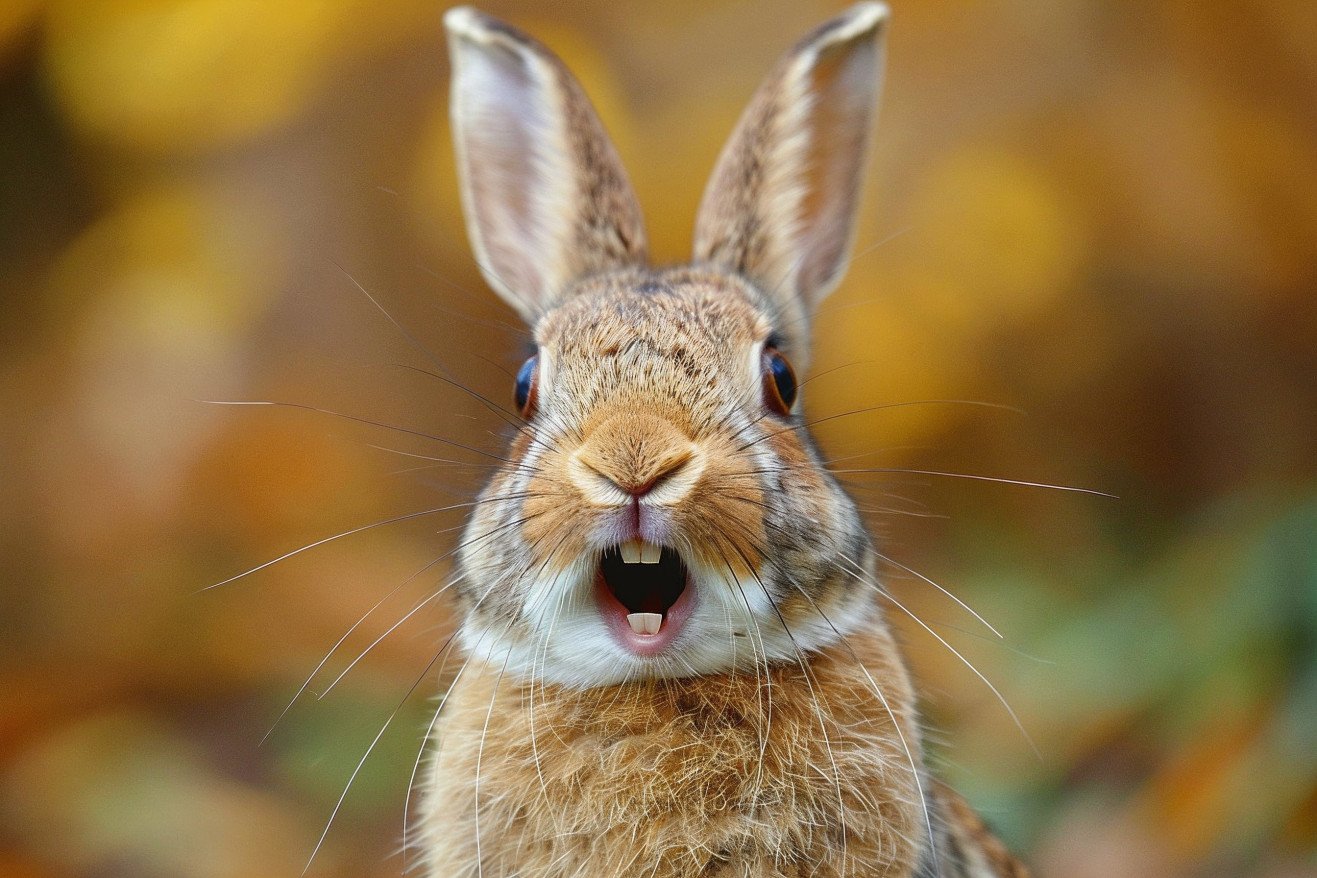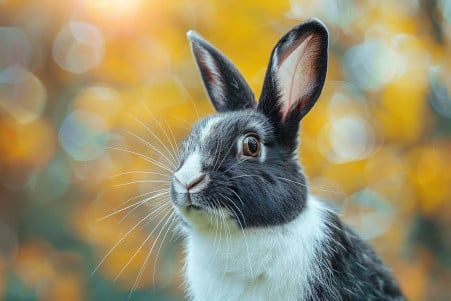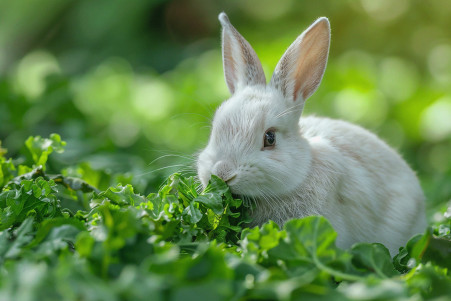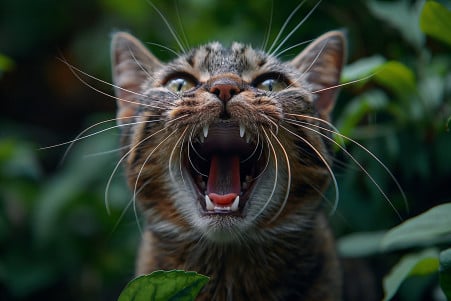The Teeth of Rabbits: Anatomy and Evolution of Rabbit Dentition
30 May 2024 • Updated 29 May 2024

How many teeth do rabbits have, and why do these herbivorous pets have such a unique dental structure? Rabbits have 28 teeth - 16 in the upper jaw and 12 in the lower jaw. This unique teeth setup, known as elodont dentition, allows rabbits to continuously grow new teeth to replace the ones worn down from their constant chewing and grinding of rough plant matter.
This article will delve into the interesting anatomy and evolution of rabbit teeth to explain why they are so important to a rabbit's overall well-being. By reviewing research in veterinary medicine, zoology, and evolutionary biology, you will learn about the specific dental requirements of rabbits and how their teeth differ from those of other herbivores. Armed with this information, you will be better equipped to take care of your rabbit's dental health.
How many teeth does a rabbit have?
Why Rabbits Have Elodont Dentition
Rabbits have elodont dentition, which means their teeth grow continuously throughout their lives. This is an evolutionary adaptation that evolved to help rabbits eat their herbivorous diet of tough, fibrous plants. As rabbits consume grasses, leafy greens, and other coarse plant material, their teeth are worn down, and if they weren't able to continually replace lost tooth surfaces, they would eventually lose the ability to chew their food and digest it properly.
The constant growth and wear of teeth is therefore critical to a rabbit's well-being and survival. Elodont dentition is an evolutionary advantage that rabbits share with other herbivorous animals like horses and guinea pigs, which also have to be able to chew and process tough plant material over the course of many years. By evolving teeth that grow continuously, rabbits and other herbivores can ensure they can eat enough to survive without being limited by the wear and breakage of their teeth.
Dental Problems in Rabbits and What Causes Them
The most common dental issue in rabbits is malocclusion, which is when the teeth are misaligned. Malocclusion can cause the teeth to grow too long, which can prevent the rabbit from being able to chew properly and cause pain. According to Petplan, overgrown incisors can grow so long that they curve and start to poke out between a rabbit's lips, and overgrown molars can cause the rabbit to drool and have trouble eating.
One of the primary reasons that pet rabbits develop dental problems is due to a lack of fiber and roughage in their diet. If a rabbit doesn't have the opportunity to chew on a high-fiber diet, their teeth may not wear down properly, which can lead to overgrowth. Genetics and certain breeds can also make some rabbits more likely to develop dental problems. Other issues include tooth root abscesses, broken teeth, and difficulty eating or weight loss.
Preventative Care: How to Keep Your Rabbit's Teeth Healthy
Feeding rabbits a high-fiber diet that includes hay and fresh vegetables is essential to keeping their teeth healthy and preventing dental problems, according to Petplan. In addition, giving rabbits safe chew toys, such as untreated wood and cardboard, will help them keep their teeth at a healthy length. Finally, rabbit owners should make sure to regularly monitor their pet's eating habits and look for signs of dental issues, such as a loss of appetite or drooling, according to PetMD.
In addition, rabbits should be exposed to natural sunlight to prevent vitamin D deficiencies that can impact the development of their teeth and bones, according to the PetMD article. Finally, Rabbit Hole Hay suggests taking rabbits to the vet for annual check-ups to ensure any dental issues are caught early and treated by a professional. By taking these steps, rabbit owners can ensure their pet's unique teeth, which never stop growing, stay healthy.
Veterinary Treatments for Rabbit Dental Problems
As noted by Tooth conditions in rabbits, regular dental check-ups with a veterinarian are important to diagnose and treat rabbit dental problems early. Treatments often involve the use of anesthesia to file down overgrown incisors and molars. In more serious cases, tooth extraction or removal may be performed to relieve pain and prevent future problems.
In addition, veterinarians may use medications and syringe feeding to help rabbits that are having trouble eating. Rabbits with a history of dental problems will need to be closely watched and have their teeth checked regularly.
Should You Brush Your Rabbit's Teeth? Arguments For and Against and How to Brush Rabbit Teeth
Dental care is one area where rabbit owners and experts don't agree on the best course of action. While the Vets4Pets article says that some people believe that brushing can help rabbits with dental issues and those who are prone to them, the Cy-Fair Animal Hospital article says that some people think that a healthy diet and chew toys are all that's needed to keep a rabbit's teeth healthy.
If you do decide to brush your rabbit's teeth, the Vets4Pets article suggests using a pet toothbrush and pet toothpaste and being careful to avoid causing your rabbit any pain or stress. However, it's probably best to talk to your vet to determine the best course of action for your rabbit, since every rabbit's needs are different.
Conclusion: Why Dental Health Is Important for Happy, Healthy Rabbits
A rabbit's dental health is closely linked to their overall health and their ability to eat and digest food properly. It's important to understand the specifics of a rabbit's dental anatomy and the fact that their teeth never stop growing. Feeding them a high-fiber diet, providing safe things to chew on, and watching for signs of trouble are all important ways to keep their teeth healthy.
Regular vet visits and quick action when problems arise are also important to keeping a rabbit healthy. With the right care and attention to their dental health, rabbits can be happy, healthy pets.


